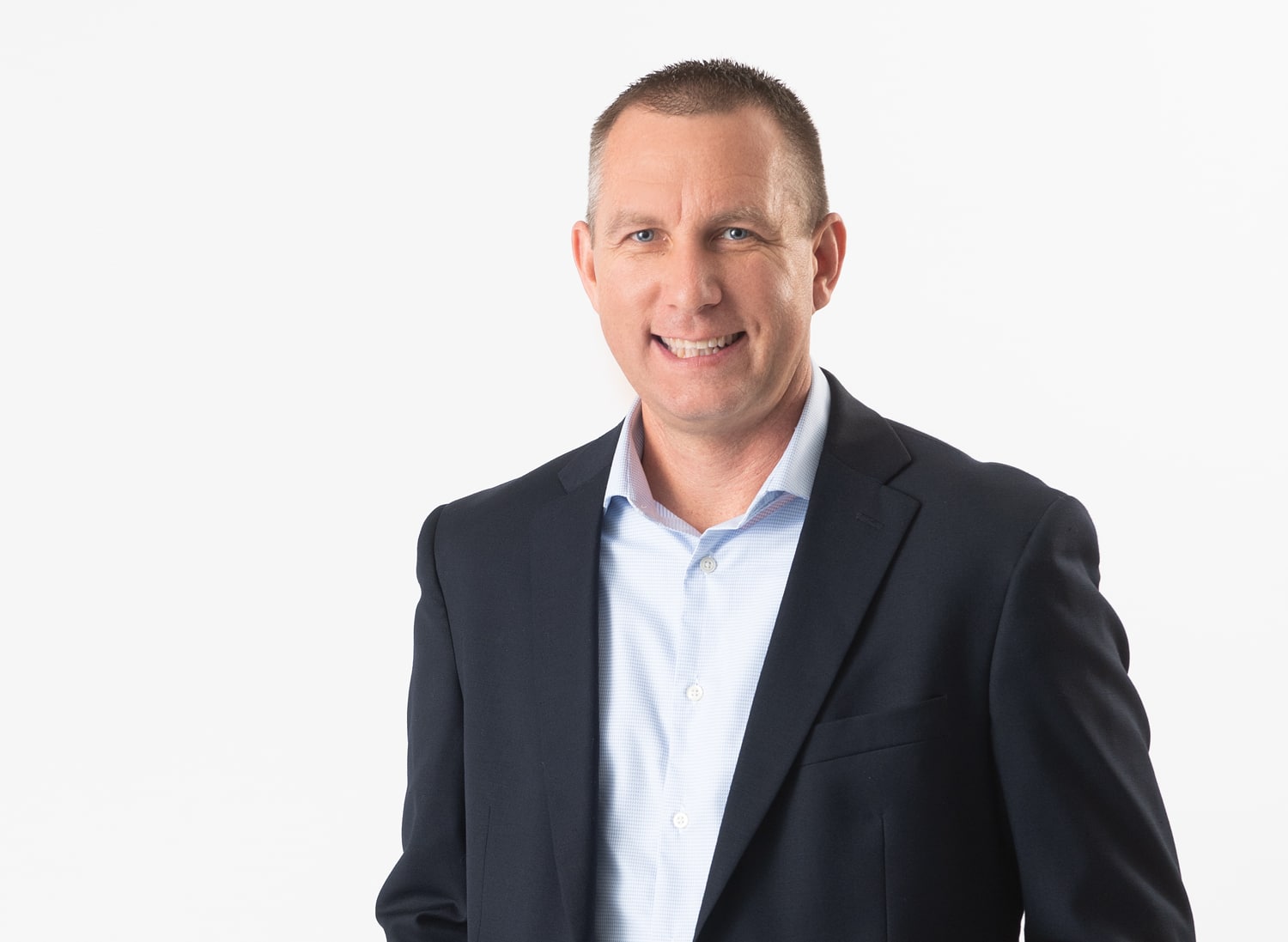A Closer Look: Cody Christensen
Development Services director, city of Des Moines

Kathy A. Bolten Oct 13, 2023 | 6:00 am
6 min read time
1,431 wordsA Closer Look, All Latest News, Economic DevelopmentWhen Cody Christensen began college, his goal was to major in animal ecology so that he could work outdoors in some type of role in natural resources or ecology.
He soon learned, though, that to land a job in an area he was interested in likely meant moving out of state.
“The more I got into it, the more I realized that it’s hard to make a living doing that type of work,” said Christensen, who in May was named the city of Des Moines’ Development Services director. “And, unless I was willing to move out of state, I realized I wasn’t going to get very far in it. … I have family and friends in Iowa; I grew up here and I wanted to stay here.”
Christensen, who worked on construction jobs during college, changed his focus to construction engineering. But that, too, had its downsides. During an internship, Christensen noticed that project managers typically worked up to 80 hours a week and that the pace was year-round.
“I anticipated having a family someday, too, and that type of commitment is pretty tough on family life,” he said. “So, I shifted back to animal ecology. I graduated in 2004 with that degree but also with enough construction experience that I could make a good living.”
Christensen was hired as a building inspector for the city of Ankeny after his graduation from Iowa State University in 2004. About two and a half years later, he joined the city of Des Moines as a building inspector.
We recently caught up with Christensen.
What did you learn from your first job in Ankeny as a building inspector?
That was my first step into a regulatory scene. I’d done the construction work but hadn’t dealt much with the regulators that set the rules of how something needs to be done to make sure that it’s safe and high quality. What I learned was that it’s a real balance and real partnership between the regulators and those who are doing the work. I learned that in order for me to be really effective, I needed to build good relationships with all of the construction teams in town that were doing that line of work. If you are able to build that relationship and establish a good line of trust, you can accomplish the intended goal. There are always some challenges but by having that approach, we all meet the goal of having a quality, safe product.
What were some of the differences between working in Ankeny and Des Moines?
In Ankeny, at the time, we were primarily doing single-story strip mall construction, single-family residential and apartment buildings. … When I came to Des Moines, I was exposed to a much wider range of projects and building types. I have always enjoyed that about working in Des Moines. We have some very unique projects, we see high rises. We still do the single-family residential but we also have projects downtown that are unique and challenging.
What are you taking from those first years in Des Moines to your new job?
The experience that I bring allows me to relate a lot more to the people who are on the other side of the table – the people that are out there on the job site. I’ve been out there with them working through the challenges, when we’ve run into something that was unexpected, for instance, on existing building renovations. Being able to relate to the practicality of what takes place in the field helps me with helping those teams find solutions. … That’s one of the things about our team that I really push: Let’s focus on finding the solutions. It’s really easy to get caught in the debate over why something got to this point. … That doesn’t move us forward. If we really want to move the needle forward, we can just stay focused on finding solutions.
What are some of the challenges in development?
When you’re dealing with an existing building, you’re always uncovering something that you didn’t expect to find. You might open up a wall and find that the substructure is just completely inadequate for supporting what it needs to hold up. So now you need to excavate more and expand the scope of the work to be able to make sure that the new things we’re putting in will be supported. This is where this gets dicey because we need to make sure that we’re putting in quality product and it needs to be safe. We also need to be able to pay for it. That’s always a challenge and balancing act.
What are your goals in this new position?
I want anyone who interacts with our team – whether it’s somebody that’s built in Des Moines for decades or someone new from out of town coming in to do a new project – to walk away from every interaction they have with my staff with the feeling that these people are really here to help make this project work. That’s the baseline that I want to set for how people perceive the interactions with the development services’ staff. I want them to see that we’re going to welcome new concepts, new ideas. … I want them to come away with the feeling that this team is really here to be a partner and help them succeed.
Right now, we’re working through a series of interviews with developers, designers, property owners, realtors to get their feedback on the impact that our processes and our requirements have on them. We want to use that feedback as a way to identify some improvements that we can make.
I really see what we do as kind of going back to my animal ecology days – the city is just another ecosystem. The work that we do in development services is not fixed or stationary – it has to evolve and adapt as market conditions and priorities change.
Are you hearing any common themes from the people that you’re talking with?
One of the common themes that we’ve been hearing is that renovations of existing structures are challenging. In Des Moines, we have an older building stock. Oftentimes we are competing with the suburbs that have lots of green space that can be developed. They have newer building stock that has newer infrastructure. We’re dealing with older buildings, older infrastructure that needs more improvement. A lot of the stuff that we do, we’re trying to promote improvements to sites and infrastructure as investments are made in certain areas. There’s a delicate balance. We need to have improvements made but if we go for too much, then we stifle that ability to renovate those structures or to reoccupy those areas.
What’s the city’s role in helping to preserve older structures?
It’s important for the city to maintain its historic structures. You look at our neighborhoods in Des Moines, and they all have a unique character. That’s something that I’m really proud of. … [In early September, the City Council voted] on the adoption of a historic preservation plan. That’s something that’s an action we are taking to help preserve not just the structures but also to recognize the history of the city.
Part of your job is economic development. Talk about your priorities in that area.
We have a number of urban renewal areas around town … where we have a strategic focus on where we’re placing incentives and promoting more development. I see us doing more proactive work. … Our team has been doing some work with an out-of-state developer that is looking to do an affordable housing project on the [former] Plaza Lanes site. We’ll be doing more of that type of outreach to get Des Moines more recognized among out-of-state developers as a place where they can do business. We’ll be working more closely with our real estate brokers on doing that.
What keeps you up at night?
We’re coming up on a presidential election. There’s always that thought of “What is going to happen with our national political scene?” That worries me but there’s really not much we can do about it except to make sure that we’re maintaining an approach that we are able to shift and adjust to changing conditions.
What do you do in your spare time?
Right now, I’m mainly a chauffeur for my kids – taking them to dance or hockey or whatever other activity they are involved in. My family likes to travel, and I’m an outdoorsman and like to hunt and fish.

Kathy A. Bolten
Kathy A. Bolten is a senior staff writer at Business Record. She covers real estate and development, workforce development, education, banking and finance, and housing.











